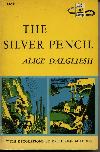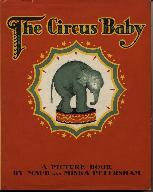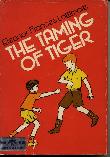 Elizabeth Mullaney Nicol has an excellent article in The New Atlantis on the Consumer Product Safety Improvement Act and its appalling consequences for old children’s books and the cultural inheritance they represent. (If you’re new to this topic, we’ve covered it extensively here and here.) Among the questions she addresses:
Elizabeth Mullaney Nicol has an excellent article in The New Atlantis on the Consumer Product Safety Improvement Act and its appalling consequences for old children’s books and the cultural inheritance they represent. (If you’re new to this topic, we’ve covered it extensively here and here.) Among the questions she addresses:
Isn’t there a wealth of worthwhile children’s literature published since 1985 for kids to read?
[Older books,] as a group, have certain desirable characteristics. Children’s books of yore tend to use more sophisticated, literary language than their more recent counterparts. The quality of their paper, bindings, and illustrations are often superior. Vintage children’s books assume and encourage the readers’ fascination with adventure, their eagerness to learn about the world, their respect for great men and women.
Won’t the really good older books survive in post-1985 reprint editions that can be sold without fear of liability? (Yes, one really does hear this argument.)

Some books from the 1950s and 60s are back in print, but with updated illustrations so the characters appear to be from our time; if that’s what it takes to lure readers who are wary of anyone who doesn’t look like them to pick up the books, it’s probably fine, but there is also value in presenting books with a style of illustration and characters with a style of dress from a different time, and that’s what we get with old copies. Some books, such as the Hardy Boys and Nancy Drew series, are thoroughly “updated” for today’s readers—simplified, abbreviated, substituting familiar words for those no longer commonly used—so if a child is going to read the originals he needs to read old copies….
Some old books, it is true, express ideas and attitudes of which we would disapprove, prejudices and errors that make modern readers wince. But learning about such sentiments firsthand is at the heart of what it means to learn our history. Moreover, while correcting some of these past problems, our present age has its own objectionable attitudes.
Won’t older children’s books still be available when intended for adult use, say as collectibles or for research?
But the availability of these books to children is the very purpose and value of preserving them. We want them in children’s hands, being read, not only preserved on the dusty back shelves of research libraries. Quantities are important — quantities of titles, and quantities of each title, so they are readily available for loan from public libraries and for purchase through used booksellers. Families have been able to build home libraries through priced-for-reading book sales and thrift stores. … We are suddenly facing the prospect that many of these books will be destroyed, making those that remain all the more rare and inaccessible.
Some used booksellers, trying valiantly to continue selling books for children, are re-labeling their children’s books as collectors’ editions. But this obscures the books from searches by those looking for ordinary children’s books, it clutters the market for real collectibles, it makes the bookseller look ignorant of his trade, and it is prohibited under CPSIA, which stipulates that a book “commonly recognized” as being meant for children’s use will be regulated as such.
The article’s strength, I should note by way of quibble, is not as legal advice: it somewhat overstates the stringency of the law, which does not ban the sale of all untested pre-1985 kids’ books as such, instead exposing booksellers to punishment when they guess wrong about whether a given volume would meet current standards (hence the CPSC’s guidance advising retailers to discard them all). And the call for “sequestering” library copies has thus far come from only one member of the three-member CPSC, not as yet the full commission. As a summation of what will be lost to children and the nation if Congress does not change this law, however, the article is one of the best yet. Read it here.
Relatedly, Ken at Popehat is still trying to grasp the news that according to our federal government:
Children’s books have limited useful life (approx 20 years)
And since Rep. Henry Waxman, closely identified with CPSIA and its defense, has a new book out, Carter Wood at ShopFloor wonders whether this topic is going to come up at any of his bookstore appearances.
P.S. Fenris Lorsrai at LiveJournal reprinted the Nicol article and in so doing prompted some interesting reader comments.
GRAPHICS courtesy VintageChildrensBooks.com.


5 Comments
These are some of the recent legislative “accomplishments” of Henry Waxman: CPSIA, Food Safety Bill, Cap and Trade Climate bill, Health care bill. Is there any poorly thought out bill that he is not responsible for?
Thanks Walter. That’s an excellent article by Elizabeth Mullaney Nicol.
It breaks my heart that so many months after the implementation of a law with so much wrong with it, we have made essentially no progress toward a rational reform of it. I am furious that Waxman will not even hold hearings, disappointed that the appointment of a third commissioner and new head of the CPSC has had no impact, and discouraged that still so few Americans are even aware of this law.
My local library continues to circulate older children’s books – but I have the impression that they’re quicker to deem old, less-in-demand volumes obsolete and to discard them. Their used bookstore no longer accepts or sells kids’ books printed in 1984 or earlier. I can still find old books at estate sales and yard sales – but prices seem to have risen on amazon, Half Price Books only carries older titles in their collectible area (which has limited space and higher prices), and my local thrift stores are either no longer stocking them or receiving them as donations (I suspect the former).
Older kids’ books are being slowly purged from our society, and it will be a loss for us all, but especially for children. In addition, we need to keep in mind that new books are still not safe from decimation by the CPSIA – as far as I know there have been no permanent exemptions for new printed materials, and publishers are definitely reducing the number of novelty books and books-plus formats they are producing.
I keep nagging my legislators, but I think they’re not even pretending to listen anymore. How disillusioning.
I saw a short segment on Headline News this morning, trumpeting that the new, tighter levels of lead regulations are going into effect. They praised how labels and packaging had to say where the product was made, etc. It was distressingly shallow and had zero reference to the “few” problems with this law. One could infer from the way the story was delivered that lead poisoning was an ongoing epidemic that this law is going to cure.
Policiticians and MSM have zero ability to look beyond the message that can sell, and as a result, has sold us all out.
Our local librarian is of the “progressive” mindset. She is using this as an excuse to remove books that she finds objectionable from the children’s section. These include the works of Beaverly Clearly, Dr. Suess and others.
I think the CPSIA’s attack on children’s books is aimed at forestalling the next generation from being any smarter than an average member of Congress.